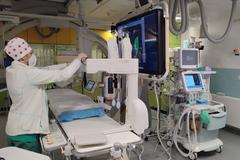Brain drain, or the loss of skilled and qualified people, has been a major drag on Slovakia’s labour market for decades. Research has repeatedly shown that Slovakia see more of its students leaving for foreign universities than most other OECD countries.
Highly qualified Slovaks who already live abroad are often hesitant to return to Slovakia for several reasons, among which they name low living standards in Slovakia and lack of work opportunities. Often they also cite a dysfunctional state and public institutions, as well as perceptions of corruption and cronyism at all levels, in many sectors.
Sociologists dealing with the problem of brain drain warn that it threatens society’s human and intellectual potential. Democratic societies should create conditions, opportunities and perspectives to ensure that mobility does not become permanent emigration, experts note.
“When experts consider [how Slovakia should] develop and catch up with western countries, they should think about not losing their highly qualified labour force,” said Marian Velšic, a researcher at the Institute for Public Affairs think tank, and author of a 2021 study on brain drain.

There have been several partial programmes addressing the outflow of highly qualified members of the workforce from the country’s labour market, some with the aim of discouraging Slovaks from leaving and enticing those who are already abroad to return.
These attempts have now translated into a component of Slovakia’s post-pandemic Recovery and Resilience Plan. Each EU member state designed its own Recovery Plan, complete with reforms and milestones. If met, they will secure the country financing from the Next Generation EU fund. The Slovak government plans to use as much as €106.1 million on luring talent, either Slovak or foreign, to the country and ensuring that fewer talented people consider leaving.
The reforms and investments that aim to tackle brain drain are included in the second requested payment tranche, which will total almost €815 million. The application for that payment is scheduled to be sent to Brussels in autumn 2022. Slovakia requested the first payment for its Recovery Plan in late April 2022.
Analyst Martin Kahanec, from the non-governmental think tank the Central European Labour Study Institute (CELSI), noted that Slovakia needs to be aware that it is in an ongoing global competition to attract talent.
“Continental Europe has a disadvantage compared to the UK and the US, and Slovakia lags behind even in comparison with Czechia or Poland,” Kahanec told The Slovak Spectator. “That is why it is crucial that we design active policies to lure talents to Slovakia and then also keep them.”



 (source: Unsplash)
(source: Unsplash)